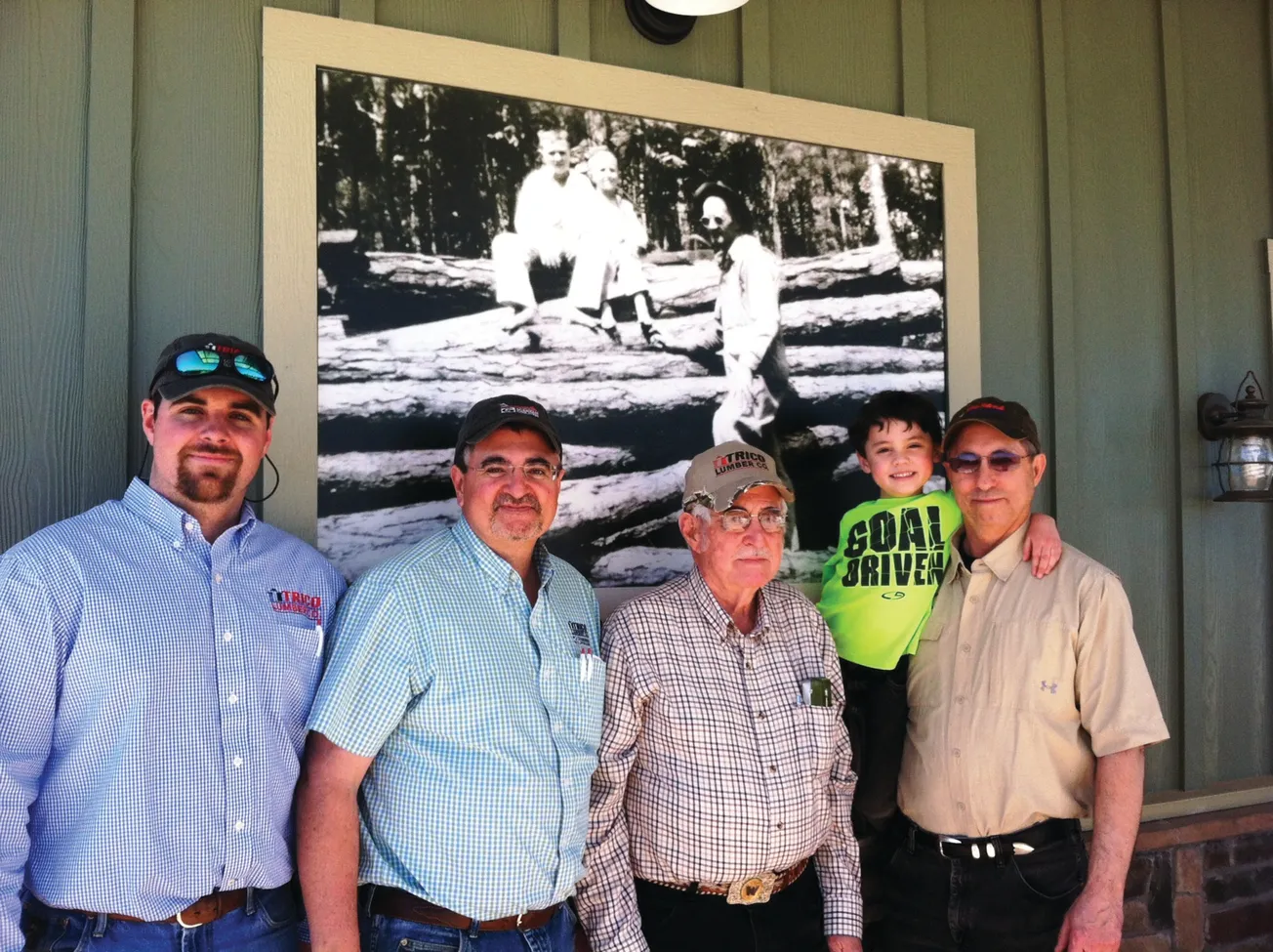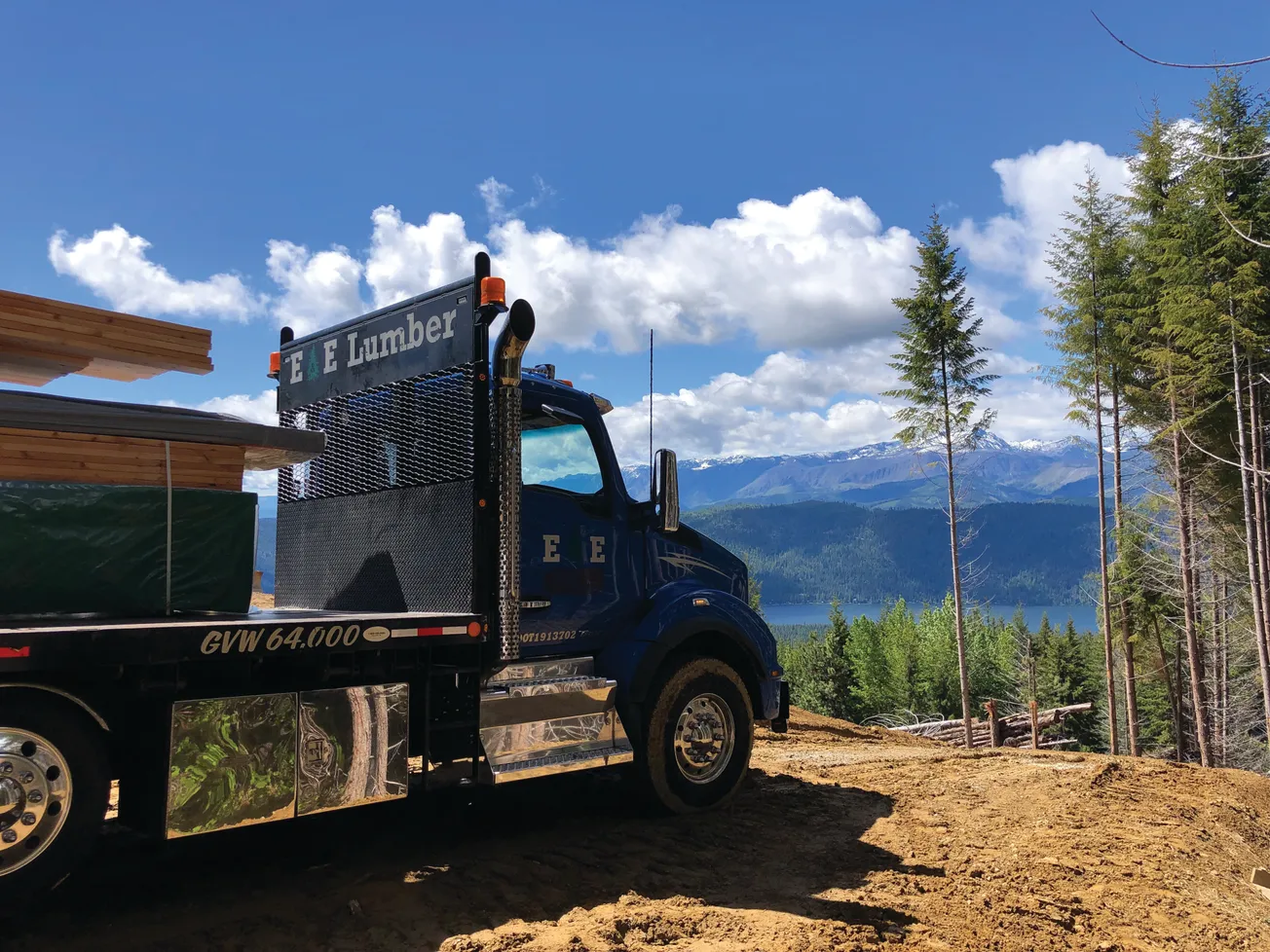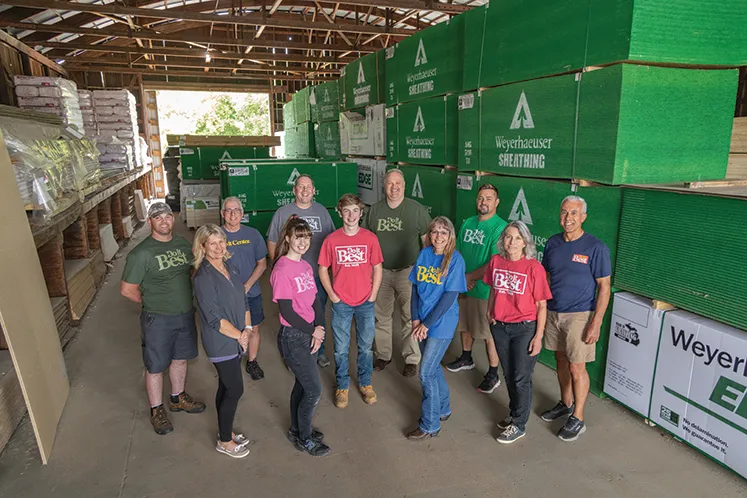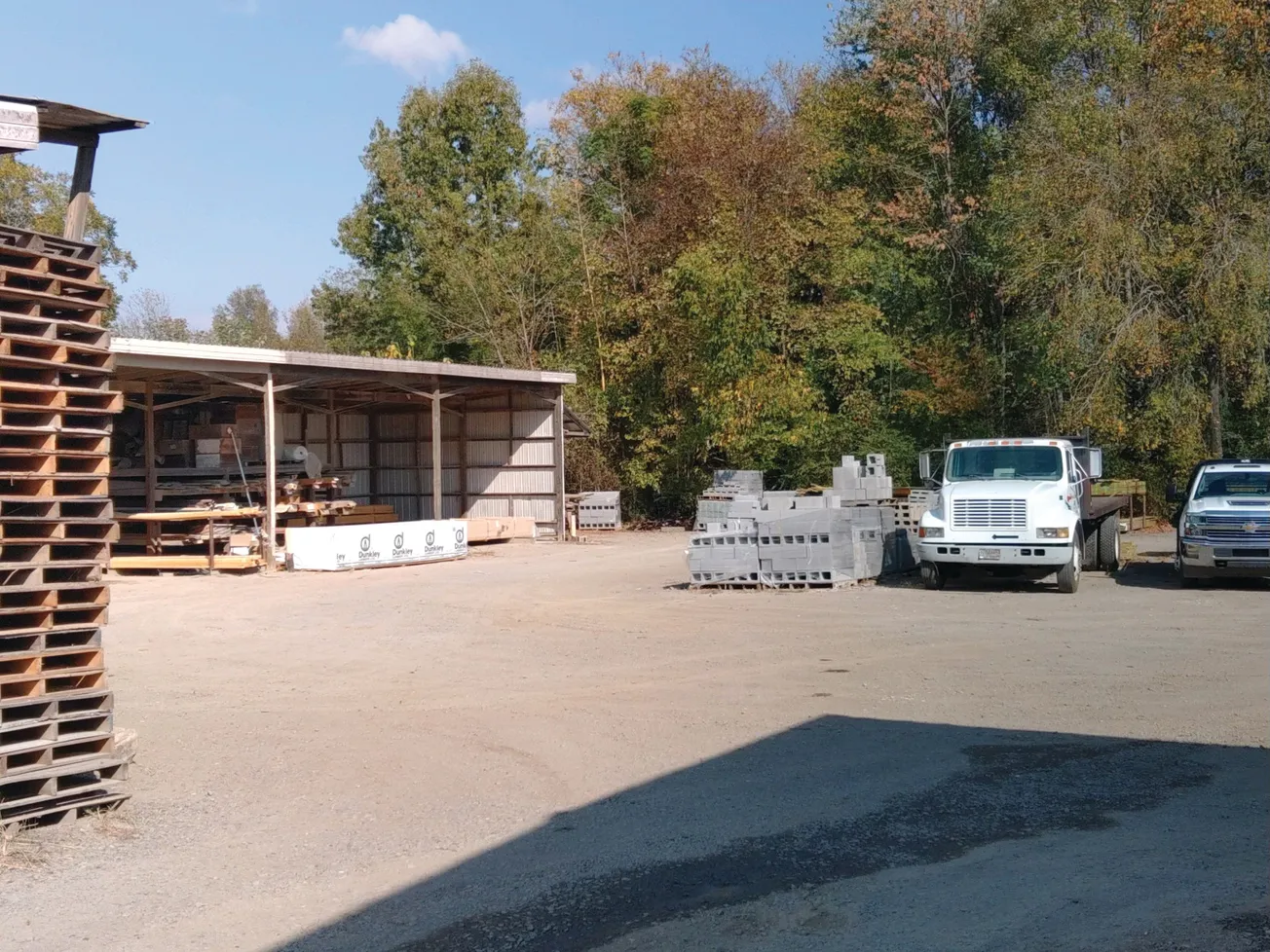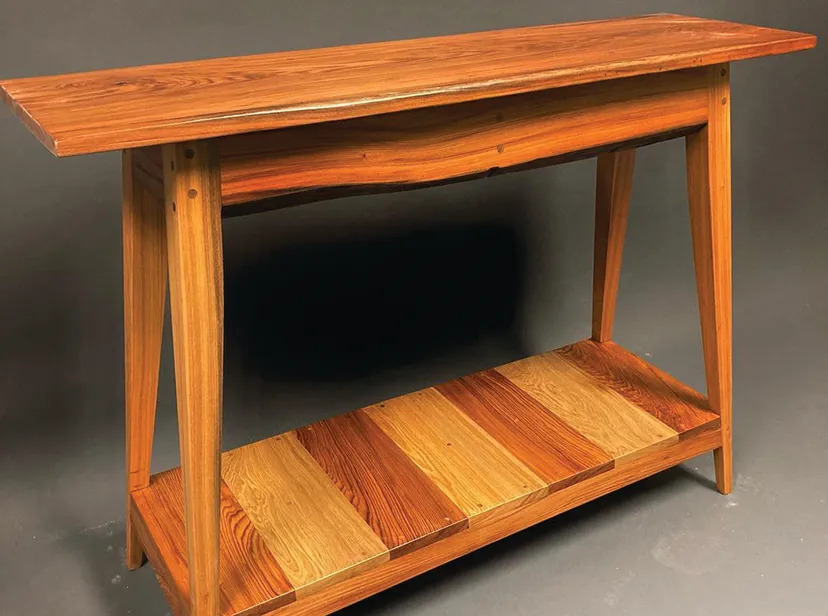Table of Contents
The Eighties,” intones Trico Lumber’s Kyle Morgan in his easy-listenin’ Texas drawl, “were not good times. The oil fields went south, plus our biggest employer (here in the northeastern corner of the state), Lone Star Steel, shut down.”
So, perfect time to launch a lumberyard? Not so much. But Kyle’s Uncle David, along with a partner, did just that, anyway. As a home builder, he’d spotted a void. Plus, he figured, it would help him cut his own building costs.
“My uncle soon bought out his partner and was in a bind. I’d just come out of college with a major in accounting, so I signed on for a short term,” laughs the man who’s now the boss, 35 years later. Probably helped that a fellow employee named Rebbecca soon became his wife, and today serves as manager of accounting at the firm. A son, Justin, also works here, too, and daughter, Jordan, lives four miles away. Should we test the drinking water?
Naw. A look at the P&L sheet and changes Kyle’s affected—leading to an expansion to three locations—goes a long way toward explaining why everybody’s happy to stay put.
“I like it here; I’m pretty blessed,” agrees Kyle, who bought the business in 1991, and changed the way of doing business. “They were still building houses, but I wasn’t going to be my customers’ competition.
“I added product lines to serve the rural area,” he explains, growing the SKUs to become a one-stop shopping experience: “everything but appliances and floor covering,” says Kyle. Plywood to power tools to—um—dog food. “We sell a lot of it, and it brings people in who might not stop here, otherwise.” They stick around and fill their shopping carts. These DIYers represent 35% of Trico’s business, “a good mix,” In Kyle’s eyes. “There’s good agricultural business, too—steel chain saws, hardware.
“We’re diversified,” he continues. “New homes, additions, farm buildings. We’ve got good relationships with several builders. One,” he notes, “puts up 1,680-sq. ft. houses: a single floor plan, so he can control costs really well. (Banks like that!) Plus, he offers good value.
“No tract builders, though, because the towns in which we’re located have only 2,000 to 2,500 people.” But they stand close to four big recreational lakes—a big ‘but.’ “We’re only two hours from the Dallas-Fort Worth metroplex, three and a half from Houston. People can get a lot more house for their money than in those cities. Plus, a better quality of life. With the Internet, they can work from anywhere, or run here on the weekends. A customer who just moved here will keep their house in Dallas until their son graduates from school, then sell it and live here year-round.”
Trico isn’t the only act around, however. Regional players include McCoy’s, Cassidy Jones, and other independents. “Why us, then? We try to partner with our builders, help them run their jobs, stage their week, as seamlessly as possible.”
Another plus: “We insulate for our builders.” Trico, indeed, has an in-house staff for this essential function, which renders, he says, “not huge margins, but it all helps.
“We also have 10 delivery trucks between our three stores, so we can get material to the jobsite far quicker than most. Ninety-five percent of our orders are same-day delivery. We’ll also set up the job for our builders and act like their accounting firm, keeping jobs separate and broken down. We invested in a new computer system in 1999 for this. We went to multi-store capacity before we even had multi-stores. We upgraded so that customers can get as many emails as they want. (Some like that; some don’t). This way, keeping each of your jobs separate can help with your accounting at the end of the month.”
Those contractors, who represent 65% of Trico’s trade, also appreciate the extra miles its staffers are willing—delighted!—to go for them. A for-instance, Kyle? “If you install windows, you’ll occasionally have a broken piece of glass. Rather than waiting for months dealing with the vendor (good luck with that!), we’ll go right out and fix it for you.”
Builders of all those lake homes value Trico’s custom-built treated wood steps, and more. “We do a large number of treated decks, too.” And for the builder of those 1,680-sq. ft. homes, Trico has developed a hardware package.
Also, Kyle notes, the state of Texas sponsors ‘grant houses.’ “If you own your own home but wish to build a new, nicer home—and you qualify—the state will bulldoze it and build you a new package home. Of course, you do have to live somewhere else during the interim, but it’s popular. We get more and more business from those builders.”
Trico’s second store, erected in 2009 in Linden, 18 miles from home base in Hughes Springs, also came about via an existing yard. “We bought it out, then built on another location in the same town. Sure, we did experience a bit of cannibalization with our existing store, but that just made us stronger in the long run. We picked up new accounts. The big lesson we learned,” he instructs, “is not to expect immediate returns. It takes about two years.”
Trico launched a third store in 2015 in Jefferson, 22 miles from Hughes Springs, because, as Kyle explains, “My management system indicated that by growing and getting a little bit bigger, it would open up opportunities we didn’t have. Now, with a three-store management system, I can float between all three. We got a lot more efficient. I serve as building materials purchaser, and my counterpart does the same for hardware. We got to a good level, working together, for better buying.
“Our customers usually trade at one specific yard, and those customers are different in all three locations. And that really surprised me, just 18 miles apart. I grew up in Linden, know a lot of people and the lay of the land. Yet, some of the products that sell in our other stores, you couldn’t give away here—and vice versa. Not as much treated lumber at Jefferson, for instance. Our managers have input and know their customers.”
They’re key people among Trico’s staff of 40. “Our Jefferson manager started out part-time as a college kid, a driver. We offer the ability to move up.”
Kyle notes another key factor: “They’re also young. I’m 58, and my main guy on the floor is 60. But everyone else is younger. My son is manager at Hughes Springs, and the manager at Linden is 48. I talk to other dealers around, and they’re all old and starting to get in a bind.
“We don’t have outside salespeople here; that’s what our managers do. To attract new business, we go out and have a little visit, tell them what we can do for them. “
To attract the DIY crowd, Trico distributes circulars four times a year. “Our former buying group dictated everything we’d run in those, so we switched organizations. Now I can run my own business and feature what I want,” he declares.
Trico has started to utilize Facebook as a free employee, too, and it’s drawing in a younger crowd. “We’ll announce a give-away on a new product. If you ‘like’ us, we enter you in the drawing. It’s been really successful,” he declares, “and at minimal cost.”Another customer draw is Jefferson’s East Texas Baddest Woodsman Day. “It’s a fun event. A $200 Facebook ad generated a crazy amount of activity.”
Business is good, and stays good. “Out here, we’re never as good as in the metroplex, but never as bad, either. It’s more consistent. (In 2009, the metroplex was down 75%: How can you plan for that?) Here, we’re dealing with retired folks building homes, and they usually have no need of financing. For them, life just goes on, whatever the economy.”
And that’s the way Kyle likes it. “There’s no such thing as a perfect job, but I’ve been here 30-plus years because I like the people I deal with; they become friends.”

